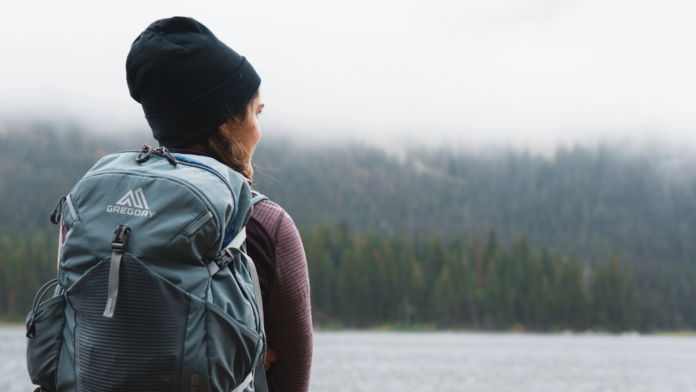Introduction to the Different Types of Camping
Camping and hiking trips generally follow a specific template of things to do — you pack your camping bags with gear, remember to bring a tent, canvas storage bag, swag mattress, camping sleeping bags, tool kit bag, and set off to your desired campsite. Though this may stay the same, it is important to note that there are several different types of camping to explore. Different goals for a camping trip can lead you to different camping types, such as tent camping, backpacking, survival camping, canoe camping, and even RV camping.
Here, we will be providing you with information about each distinct camping type, allowing you the opportunity to decide for yourself which one to try out for your next trip. There will also be some information on the more common kinds of camping trips. You’ll soon be an expert camper with these tips!
Camping Types
There are five essential and distinct camping types. They each vary from each other, and can even be combined to create more of a hybrid camping experience. All of these types are exhilarating, and will certainly allow you the chance to grow, learn, and have a one of a kind experience with the beauty of nature.
Tent Camping
Firstly, the most rudimentary type of camping would be tent camping. This process involves finding the perfect site, setting down your tent and spending a couple of nights there in the middle of your ideal campsite — this could be a dense forest or an airy beach. Being the simplest and least complicated type of camping, this type of camping is ideal for a family outing, and to expose your children to the beauty of nature, allowing them to bask in a different kind of entertainment away from the phones and technology that pervades their day to day life. On top of this, it is a prime opportunity to teach your kids about responsibility and family bonding or team-building.
If you think this is the option for you, there are some things to settle and note before embarking on your trip. Firstly, it is important to find the best available spot for your tent. This should be on a flat surface with no obstructions (like rocks or roots), to ensure you a comfortable and good night’s sleep.
With this option, it is important to observe weather patterns as well, in the event of a sudden rain shower at night. It is necessary to make sure to redirect the water away from your tent — and also avoid placing your tent in any type of naturally occurring cavity or channel, as this could spell danger for you in the event of heavy rain.
What makes this type of camping stand out is the fact that you and your chosen camp companions will be creating your own camping space together — not only will this serve as a home base for hikes, but it will also be a kitchen and dining area where you will be eating and making your own food in the midst of the beautiful scenery nature has to offer you. Additionally, this space will be a gathering point for you to share stories and chat around a campfire (though this depends on the rules of each campsite). It is important to be careful with all food scraps and to make sure to dispose of all leftover food properly, or unwanted pests like rats or racoons may join you at your campsite. We assure you, these unexpected visits are certainly not enjoyable.
Backpacking
This version of camping generally consists of walking in the day with your gear and a lightweight tent on your person and sleeping outside in this tent when you find the perfect spot. This type of camping is transient, as it involves constantly moving campsites along your hiking route. This process could last from one afternoon to a night, and can even stretch up to many months.
This camping type is often therapeutic, as you won’t be confined to one campsite, but rather will be constantly on the move, finding new and different things about the nature that surrounds your hike along your journey.
Before embarking on this type of hiking, the main thing to do is to plan thoroughly and let someone know about this plan. This is to ensure you remain safe if anything goes awry. Following this, it is important to ascertain the portability of your gear, as this will be on your back the entire trip. To render this trip as painless as possible, it is crucial to ensure your gear is lightweight, and that you will be wearing comfortable shoes and clothes. It is also important to bring along a first aid kit to ensure you are prepared for anything that might happen.
Survivalist Camping
This type of camping is the most ‘hardcore’, and is definitely not recommended for beginners. It is mainly for campers who have mastered all techniques required for other camping types, and are familiar with any possible problems you could encounter. Survivalist camping has two subcategories — base camp survival camping, and walk-out survival camping. Despite the different titles, the goal remains the same: survive. This mode of camping is a test of your camping abilities.
Base camp survival camping involves finding an isolated spot hidden away from the public, and setting up your tent there for a period of time. This means you will need to catch and prepare your own food through various means, and avoiding the detection of potentially dangerous wild animals.
Walk-out survival camping is different in that you will be dropped off at some random place in the wild, and your goal will be to find your way back to civilization. This is the most difficult and strenuous type of camping, and the need to find your own sources of food and water in a strange, unfamiliar place certainly doesn’t make it easy.
You will need to map out every detail, and also make sure to inform an emergency contact of your plan. If you are an experienced camper and are interested in this type of camping, there are courses on wilderness survival to truly help you decide if this is something you would like to engage in.
Canoe Camping
Essentially backpacking with the added twist of travelling by water, canoe camping is a new water-based experience that allows you to explore past the restraints of land travel. Before diving in, you will need to find the best location for you to set down your tent. This should be based on what attractions you are looking for, be it fishing, scenery, or wildlife spotting.
This camping type is recommended for groups of two, to ensure that you are not left alone in the event that something goes wrong.
It is also important to check the weather beforehand, as this could affect the water and your ability to travel by canoe. It is necessary to have a backup plan as well, to ensure that you have a plan in case of emergencies.
This type of camping is ideal for immersing yourself in wildlife and scenery from a different angle. In addition to this, being surrounded by water is sure to clear your mind of all stresses.
RV Camping
This next type of camping is contentious as many are undecided about whether it truly counts as camping. It combines camping with the mobility of an RV, thus providing you with a series of advantages and disadvantages in equal measure.
The perks are undeniable— you can visit a wider range of places, your campsite can be anywhere with available parking, and you have shelter and safety from bad weather. Additionally, you have the option of an installed kitchen, fridge, and bathroom for a smoother camping experience.
These must be considered along with the downsides of not truly experiencing everything nature has to offer and being unable to reach certain campsites by car.
There is a lot to be said about this camp type being inauthentic, but it is definitely an option if you’re willing to consider it.
Winter Camping
Source: https://www.pexels.com/photo/camping-ground-1752417/
A general trend for campers would be to scrap all camping plans until spring, but it is possible to have camping plans even during winter with fun activities like skiing, sledging, and even snowboarding.
What is crucial here is to plan the trip, and ensure that you pack enough layers for you to stay warm. Campsites would be entirely transformed with a layer of snow, and the chance to be able to camp amidst a flurry of snow will be life-changing. Just make sure you keep warm and enjoy this once-a-year experience!
Adventure Camping
Though it can be said that every kind of camping is an adventure, there is a specific type of camping geared towards adventure-seekers. This type of camping should only be done by those familiar with every aspect of camping, and by those comfortable staying in nature. This type is separated into two different periods— day and night camping. For day camping, you will be travelling under the sun, enjoying everything the light touches. When night catches up to you, you will set up your camp and rest. This type of camping means that you will constantly be on your feet, so ensure that you have enough strength and stamina, and break out your most comfortable shoes!
Bicycle Camping
This type of camping is relatively new but is quickly gaining traction. Though it does require an all-terrain bicycle, it would increase mobility, and allow you to reach more places than you could on foot alone. Just pack along a tent, do some reading up on the rules of a campsite, plan your trip and you’re ready to go.
Conclusion
Camping is one of the most diverse leisure activities. Not only are there various types to choose from, but you can create your own type by combining each of the types to create an unforgettable camping experience. Though some campsites pose more of a challenge or have entry requirements (like a certain level of familiarity with camping), there is always an option for everyone to try out. Whatever that is, we hope that this article gives you a clearer idea of what kind of camping you’d like to explore.











